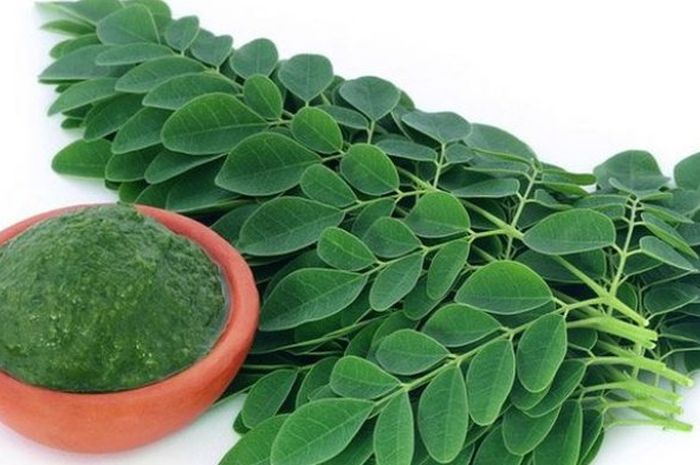Frozen cement production in Indonesia is the focus of attention in the dairy farming sector. However, one of the problems is environmental temperature, such as high ambient temperature disturbing the reproductive performance of bulls. Heat exposure exhibits detrimental effects on reproductive organs, including leydig and sertoli cells. A decrease amount number of leydig cells can interfere with the steroidogenesis process, which causes unbalanced testosterone synthesis and possibly interferes with spermatogenesis.
Furthermore, the degenerative changes of leydig cells caused steroidogenesis to be interrupted and recovered within 140 days after the last exposure to high temperature. In an ultrastructural study reported 14 days of hyperthermia causing a severely enlarged cisterna of the smooth endoplasmic reticulum and swollen mitochondria with degenerating tubular crest was observed in the Sertoli cells. To keep this condition at an acceptable level, natural antioxidants, such as vitamins C and E, carotenoids, and flavonoids are needed in the testes.
Recently, it has been focused on the role of antioxidant defence systems in fighting oxidative stress. Endogenous antioxidants in plants may have an essential part in oxidative damage, possibly preserving the biological function of cells. These antioxidants are sufficient to prevent oxidative damage by boosting antioxidant enzymes, which reduce free radical production and lipid peroxidation. Moringa oleifera or commonly known as “moringa” has been known for its protective medicinal properties since ancient times and is reported to have high levels of natural antioxidants such as polyphenols (ellagic, chlorogenic, gallic, and ferulic acids), flavonoids that will scavenge free, radical activating enzymes. Antioxidants and inhibits oxidation. This plant also has anti-inflammatory, anti-hypertensive, anti-pyretic, anti-ulcer, anti-diuretic, anti-diabetic properties. Therefore, this study aims to determine the protective effect of Moringa leaf extract on the number of leydig and Sertoli cells in white rats due to the influence of high temperature.
The results indicate the testes of mammals are very susceptible to oxidative stress caused by heat stress. The negative control group (C-) which was only given 1% 1 ml NaCMC was significantly different from the positive group (C +) which was given 1% 1 ml NaCMC and was induced for one hour at high temperature. It reveals evidence of testicular damage from high temperatures and proves that high temperatures can harm the leydig and Sertoli cells. High temperatures can lead to thermal stress and the formation of excess reactive oxygen species (ROS). ROS can react with membrane lipids, nucleic acids, proteins and enzymes as well as other molecules that cause cell damage and disruption in cell function. High temperature and humidity environments harm the health and sexual behaviour of animals such as degeneration of testicular cells, reduce the percentage of ejaculation and impair sperm production and reproductive function.
Cell damage is caused by increased levels of ROS, which can cause oxidative stress which can damage the testes, which are high in polyunsaturated fats and can cause pycnosis in Leydig and Sertoli cells. Previous studies have shown that high ROS concentrations play an essential role in the pathophysiology of mammalian testes. The formation of ROS is accompanied by upregulation of antioxidant enzyme system, which protects tissues from damage caused by excessive ROS through scavenging activity of enzymes such as SOD (superoxide dismutase) and GSH-Px (glutathione peroxidase). Testicular oxidative stress is affected by this balance and scavenging system.
Moringa oleifera can prevent the damaging effects of leydig. It is also confirmed by previous research that this extract significantly increases male fertility hormones, especially testosterone, follicle-stimulating hormone (FSH) and luteinizing hormone. This result may be due to the presence of flavonoids. Flavonoids are a well-known antioxidant that can repair testicular damage related to oxidative stress in animal tissue. The absorption of flavonoids in Moringa leaves varies based on chemical structure, molecular weight, glycosylation in each specimen, and esterification in the digestive tract.
Flavonoid metabolism is simplified when ingested orally, metabolized by the intestine, then metabolites to the liver via the hepatic portal vein and undergo further processing. Liver metabolites can be transported to targeted cells and tissues, excreted into bile and undergoing recirculation, or eliminated in urine or feces. Thus, moringa leaf extract may protect the number of leydig and sertoli cells in white rat testicles due to exposure to high temperatures.
Author: Budi Utomo
Link:
https://rjptonline.org/AbstractView.aspx?PID=2020-13-7-57





